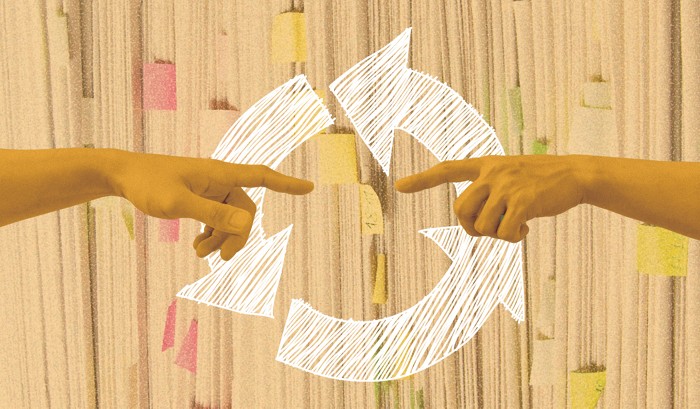Credit: Madeline Monroe/C&EN/Shutterstock
Two major academic publishers of open access research – that is, free to read outside a paywall – have been accused of excessively citing articles previously published in their own journals.
A study published in May before peer review on the preprint server SocArXiv suggests that high self-citation rates may have increased the journal impact factor (JIF) of titles published by MDPI and Frontiers in recent years.
The study authors examined the citation patterns of 8,360 journals published by 20 of the largest for-profit academic publishers between 1997 and 2021. They found that articles published by Frontiers and MDPI titles contained more self-citation than other publishers’ journals.
Citations are important in academia because they are used to calculate metrics such as the JIF, which is often incorrectly used to assess researchers and their work.
“The tendency to self-cite is almost the same across all journals from all publishers, except Frontiers and MDPI, which are two clear outliers,” says co-author Marco Seeber, a sociologist and professor of public policy at the University of Agder. He notes that self-citation of studies published in the past five calendar years and used to calculate the JIF is particularly high.
It “is difficult to explain a concentration of citations within this window and across a publisher other than by manipulation,” said Matt Hodgkinson, a research integrity specialist and member of the Committee on Publication Ethics, who was not involved in the new research. “It is clear that perverse incentives influence citation behavior on a large scale,” he says, adding that the research is “well thought out and sophisticated.”
Seeber’s previous research suggested that researchers in a dozen countries cite their own papers at an unusually high rate, a phenomenon he and his colleagues attribute to policies in those countries that encourage such citation practices. In 2018, they reported that researchers in Italy increased their self-citation rates after a controversial 2010 law came into effect requiring academics to meet certain productivity thresholds to qualify for promotions.
Editors have been accused in the past of asking authors to add citations to previously published articles to artificially boost their journals’ citation figures.
“Publishers and editors should never require or routinely ‘suggest’ that authors cite their journals in order for their articles to be accepted,” says Hodgkinson. “[Even] if they were authors trying to curry favor and the [JIF] of their target journal, or of editors who commit fraud, publishers still have a responsibility to oversee processes to ensure citations are not manipulated.”
For him, it is important that all citation-based metrics do not take into account or explicitly adjust for self-citation, whether by institution, editor, journal or publisher. “In addition to highlighting and monitoring citation manipulation, the broader solution is to stop judging authors and institutions based on the impact factor of the journals they publish in,” he says.
Giulia Stefenelli, chair of the MDPI scientific council, said in an email that the publisher has a transparent policy on self-citation. “Any citation manipulation identified is closely monitored and authors and reviewers must adhere to strict guidelines. Reviewers and scientific editors are responsible for verifying the relevance of citations. MDPI does not at any time encourage the addition of journal citations to any article as this would be unethical.”
A Frontiers spokesperson said in an email that the study uses “unnecessarily complicated methodology” to calculate self-citations and conflates publication output growth with self-citation. Our “Research Integrity Team has implemented specific controls to systematically monitor for unethical citation practices. As with all serious violations, any reviewer or editor found engaging in such activity may be immediately terminated,” the spokesperson said.
Chemical and technical news
ISSN0009-2347
Copyright © 2024 American Chemical Society
